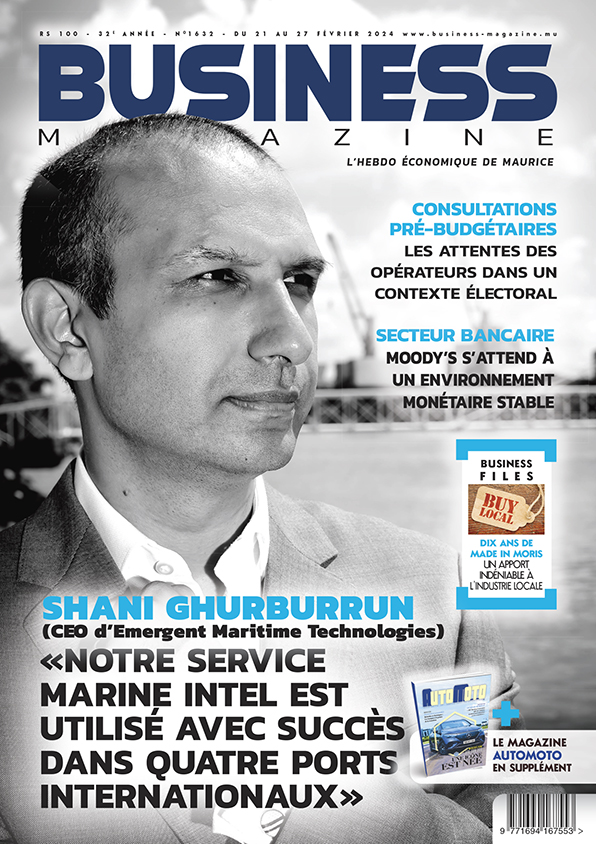The arrival of legislation in the Fintech Industry
Share

 THE Virtual Asset and Initial Token Offering Services Act (“Act”) has been enacted on 16 December 2021 in order to provide a regulatory framework for the Fintech sector in Mauritius. This can be viewed as a positive development as Mauritius was in need of a legislative framework primarily due to its objective to align itself with the international AML/CFT standards. The country was found to be partly compliant with the guidelines adopted by the FATF concerning virtual assets and their providers and the main shortcoming was the absence of a comprehensive legislative framework. In order to avoid reputational damage for a second time, and in line with its policy to adopt a zero-tolerance approach towards money laundering activities in all sectors, Mauritius set out the regulatory requirements for virtual assets by way of the Act.
THE Virtual Asset and Initial Token Offering Services Act (“Act”) has been enacted on 16 December 2021 in order to provide a regulatory framework for the Fintech sector in Mauritius. This can be viewed as a positive development as Mauritius was in need of a legislative framework primarily due to its objective to align itself with the international AML/CFT standards. The country was found to be partly compliant with the guidelines adopted by the FATF concerning virtual assets and their providers and the main shortcoming was the absence of a comprehensive legislative framework. In order to avoid reputational damage for a second time, and in line with its policy to adopt a zero-tolerance approach towards money laundering activities in all sectors, Mauritius set out the regulatory requirements for virtual assets by way of the Act.
Although some experts argue that the crypto industry is self-regulated, the number of crimes involving the use of virtual assets continues to rise. While certain countries such as India, China and Russia have banned, threatened to ban or issued warnings against investments in crypto assets, others are attempting to formally regulate cryptocurrencies and capitalise on the window of opportunity. Given that the cryptocurrency sector boomed to USD 2.5 trillion in the second quarter of 2021, it is arguable that the merits of permitting this industry to thrive in a regulated environment far outweigh the demerits.

Key Features of the Act
The Act provides a regulatory framework for virtual asset service providers (VASPs) and the issuers of initial token offerings (ITOs). The Act addresses several fundamental aspects, such as licensing, supervision and monitoring of VASPs, registration procedures for issuers of ITOs, governance structures, risk management and information, disclosure issues for VASPs, protection of customers and compliance with international standards.
“Although some experts argue that the crypto industry is selfregulated, the number of crimes involving the use of virtual assets continues to rise”
The first part of the Act regulates the licensing and supervision of VASPs. The definition of VASP, which has been borrowed from FATF, is deliberately broad to encapsulate most businesses dealing with virtual assets. In order to determine if it is providing a virtual asset service, an entity will need to first understand the definition of “virtual assets” under the Act. A virtual asset means a digital representation of value that can be digitally traded, or transferred, and can be used both for payment or investment purposes. The term does not include digital representations of fiat currencies, securities and other financial assets that are already covered in the securities laws of Mauritius.
The VASP licence will be divided into different classes depending on the activities of the applicant.
Digital assets are difficult to define or categorise as they are well capable of being multi-functional and multi-purpose. Despite the lack of a common definition, a three-part subdivision of crypto assets has broadly been made: (i) payment tokens, (ii) utility tokens, and (iii) security tokens (Global Digital Finance, 2019; European Banking Authority, 2019, OECD report on taxing of virtual currencies). Due to the difficulty in providing a common definition, it is noted that the virtual assets definition in the Act does not cater for tokens which only provide access to certain products or services (i.e. access tokens) or non-fungible tokens which represent unique digital assets (such as digital artwork) but are not necessarily used for payment or investment. This can result in service providers who deal with these types of tokens falling outside the scope of the Act and thus the licensing requirements. This may defeat the purpose of the legislation, although the definition leaves the door open for the FSC to regulate a business if such tokens are used for “investment purposes”
VASPs generally carry out activities on virtual platforms without the need for physical presence in each jurisdiction. The lack of need for physical establishment or direct contact renders it difficult for regulators to have effective supervision of the providers’ activities. To address this issue, the Act requires VASPs to have a physical office in Mauritius and ensure that their business activities are directed and managed from Mauritius. The physical presence requirement is instituted to ensure that local anchorage is available for the FSC to supervise the conduct of licensed VASPs and enforce regulation. This also takes us back to the concept of central management and control for tax purposes, where it is important for businesses to establish economic substance to obtain tax benefits, especially given the virtual nature of this industry.
Further, the Act prescribes the ongoing responsibilities of VASPs which include inter alia, implementation of adequate systems and controls depending on the scale and nature of their business to prevent system or market abuse and unauthorised access to data, money laundering and terrorism and proliferation financing. The Act also provides for protection of customers by obliging VASPs to maintain a minimum unimpaired stated capital and sufficient virtual assets to satisfy liabilities towards clients. They are also required to adopt policies and measures to comply with their obligations under the Act, the Financial Intelligence and Anti-Money Laundering Act and the United Nations (Financial Prohibition, Arms Embargo and Travel Ban) Act 2019 relating to prevention of anti-money laundering and combatting the financing of terrorism and proliferation.
The Act specially caters for the Travel Rule recommended by the FATF to address the AML/ CFT challenges associated with increasing global use of cryptocurrencies and help authorities better track criminals who launder money by using cryptocurrencies. This rule requires VASPs to disclose specific customer data when transacting crypto assets. Under the Act, the originating VASP is required to obtain and hold accurate information on the virtual assets being transferred, including information on the beneficial owner. Such information shall be immediately and securely submitted to the beneficiary of the VASP following each transaction and be made available to the FSC and other competent authorities upon request. A risk-based approach should be adopted to determine whether the required information is complete and whether to execute, reject or suspend the transfer of virtual assets
The anonymity afforded by the blockchain technology is particularly useful for money launderers. The Travel Rule will help AML/CFT efforts by enhancing the audit trail when virtual assets are transferred between entities. The new information collection rules will mean that financial authorities are better able to detect and prevent money laundering activities involving cryptocurrency and will also help deter criminals by reducing the number of VASPs through which they can move funds.
The second part of the Act deals with issuers of virtual tokens through ITOs. An ITO is a popular method for raising funds for products and services related to virtual assets. Investors can buy into an ITO to receive a new virtual token issued by the promoter. This token may have some utility related to the product or service that the company is offering, or it may just represent a stake in the company or project. Given that there are clear similarities between a traditional public offering where shares of a company are offered to investors and an ITO, it is crucial for the interests of investors in an ITO to be protected by regulatory bodies, just as in the case of public offerings under the securities law.
In this context, the Act introduces strict rules relating to the issuance of white papers (i.e. prospectus), which ensure full and accurate disclosure of information to potential investors about, inter alia, the issuer and its products/services as well as potential risks associated with the investment. The Act also provides remedies for purchasers who are prejudiced during such an ITO process including rescission of subscription, damages and withdrawal of purchase.
Both VASPs and issuers of ITOs must abide by strict rules of professional conduct and com- [WHAT THE EXPERT SAYS] 57 pliance. These include carrying out business activities with honesty, fairness and due diligence as well as ensuring that appropriate measures are taken to safeguard the client’s assets and money. They are further required to maintain the confidentiality of information of clients unless otherwise required by legislations.
In order to preserve the integrity of the financial system and to protect the interest of the clients of virtual assets or tokens, the Act empowers the FSC to suspend the licence of a VASP and revoke the registration of an issuer of an ITO. Further, a licensed or registered person who fails to comply with the Act will commit an offence and where no specific penalty is provided, on conviction, be liable to a fine not exceeding one million Mauritian Rupees and to imprisonment for a term not exceeding 5 years.
Views and comments
Introduction of a legislation specific to players in the Fintech industry is a welcome step, given that it is crucial for investors to trust our financial system. It also takes us one step closer to institutional crypto adoption and State recognition of digital assets as an alternative to fiat currency.
Nonetheless, the vastness and dynamic nature of the Fintech industry poses a challenge to regulators in terms of formulating ways to regulate it. It will be crucial for the Act to be regularly updated to ensure that it remains relevant in the face of technological and market developments as well as other emerging asset-types. By the same token, it is important for the FSC to maintain competent staff with thorough knowledge and industry-specific experience to enable efficient and effective exercise of its broad powers under the Act. Otherwise, Mauritius may soon fall back into old habits and end up being considered by international bodies as a jurisdiction with existing but unenforced (or poorly enforced) regulation.
The Act provides for many systems and controls to be implemented by VASPs which will result in significant administrative costs. Although the regulation is well intentioned and aims to prevent the commission of financial crime, it must be backed by financial incentives that will draw investors to Mauritius. For example, the Act does not (quite understandably) provide clarity on taxation of virtual assets transactions and the income of VASPs. The transitional provision only clarifies that virtual assets will not be considered as securities under the income tax act. It is hoped that that there will be more clarity on the taxation of virtual assets and we await to see whether tax incentives will be introduced to attract investors in this sector.
 “It is important for mauritius to implement a clear guidance and framework on taxable events involving virtual assets and forms of tax applicable to virtual currencies”
“It is important for mauritius to implement a clear guidance and framework on taxable events involving virtual assets and forms of tax applicable to virtual currencies”
As previously explained, it is difficult to strictly categorise a virtual asset, as it can exhibit different characteristics. Therefore, it may be more practical and viable for the Mauritius Revenue Authority to adopt a flexible approach to taxation of virtual assets
According to the OECD report on the taxation of virtual assets published on 12 October 2020, most countries have considered virtual assets as a form of property and most commonly as intangible assets. Disposal or exchange of a virtual currency may be subject to income tax, although some jurisdictions allow individuals to exchange virtual currencies for fiat currency without the transaction representing a taxable event.
There can be differences in the tax treatment of transactions in virtual currencies depending on the status of the parties involved. For instance, a person who occasionally trades in cryptocurrencies or who holds cryptocurrencies as an investment may be subject to capital gains or other forms of tax. One example is India, which has recently announced a flat-rate tax on cryptocurrencies. The 30% tax on income from cryptocurrencies will put digital assets in highest tax band and is expected to curb speculation in the market. The treatment of such income will be akin to that of gambling wins, which is likely to deter investors. Based on this, using the definition of virtual assets provided in the Act may not be appropriate for tax purposes
In terms of taxation, Mauritius would be better served not to follow the footsteps of India, if it wishes to see a rapid growth of the industry and continue to attract investment. India hopes that its treatment will discourage only retail traders and those who pursue short-term gains on speculative trades, but in reality, runs the risk of being viewed by bigger institutional investors and the crypto community as an unfriendly jurisdiction
It is important for Mauritius to implement a clear guidance and framework on taxable events involving virtual assets (example via mining, ITOs and airdrops) and forms of tax applicable to virtual currencies (example income tax, VAT, transfer taxes). An official guidance on the boundaries between different types of crypto-assets, and on how the different forms of these assets are treated for tax purposes, could be useful while ensuring that our jurisdiction remains appealing to potential investors in this industry.
In a world divided between proponents and opponents of regulation, the best way forward seems to be finding the correct regulatory equilibrium that will not rob digital assets of their transformative nature and future opportunity for further development of their pioneering technology.









